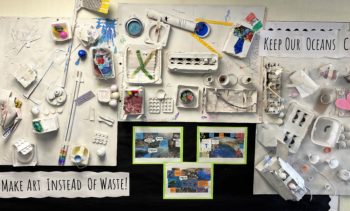 Kids Become Junior Environmentalists
Kids Become Junior Environmentalists
Kids are excellent idea generators when it comes to the future. They can contribute to solutions with actions in their home environment. Kids can do their part to impact largescale problems like waste.
Limiting Waste
There is a lot of waste at school. Snack food wrappers, utensil waste, food packaging, milk cartons, partially consumed food. ALL of it is thrown away after single consumption. Most snack items that kids bring to school also include unnecessary packaging. Kids do their best to throw their wrappers and waste away, but none of them are recycled. [Read more…]


 Why I Homeschool
Why I Homeschool Businesses were shutting down and asking employees to work from home. My husband was one of the last employees to work at his computer company. It made absolutely no sense to me why he was being required to go to work when the barista, serving coffee in the company lobby, was staying home. Finally, my husband received a phone call from his boss to work from home. I guess that Wednesday was the last normal day I can remember during the Covid pandemic. The next day, my husband worked from home and I worked at the school.
Businesses were shutting down and asking employees to work from home. My husband was one of the last employees to work at his computer company. It made absolutely no sense to me why he was being required to go to work when the barista, serving coffee in the company lobby, was staying home. Finally, my husband received a phone call from his boss to work from home. I guess that Wednesday was the last normal day I can remember during the Covid pandemic. The next day, my husband worked from home and I worked at the school.
 How Parents Support Their Children’s Milestone Activities
How Parents Support Their Children’s Milestone Activities